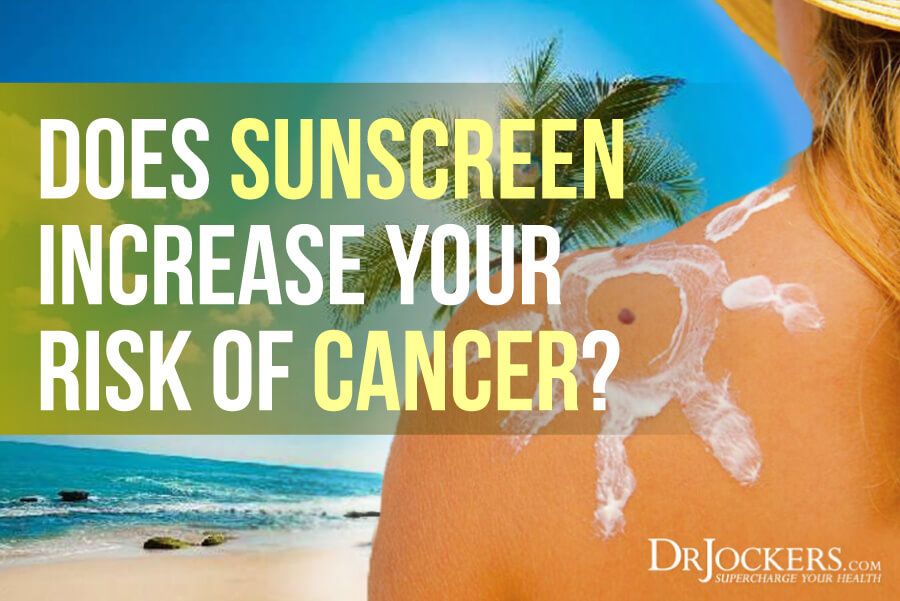
Does Sunscreen Increase Your Risk For Cancer?
Before you lather up with sunscreen for a long day outside you should look at what is actually in the bottle. These lotions contain chemical mixtures that have been proven to block UVA & UVB radiation exposure and prevent sunburn. These chemical cocktails are now linked to serious health consequences including an increased risk of cancer. Natural strategies allow us to optimize sun exposure without chemical toxins within sunscreen.
The sun provides our body with an essential stress through its UV radiation. This UV radiation stress signals a molecule on the skin (7-dehydrocholesterol) to convert to the active form of Vitamin D3 (cholecalciferol) in the body. Vitamin D3 synthesis depends upon UVB radiation which effectively penetrates only the epidermal (outer) layers of the skin (1).
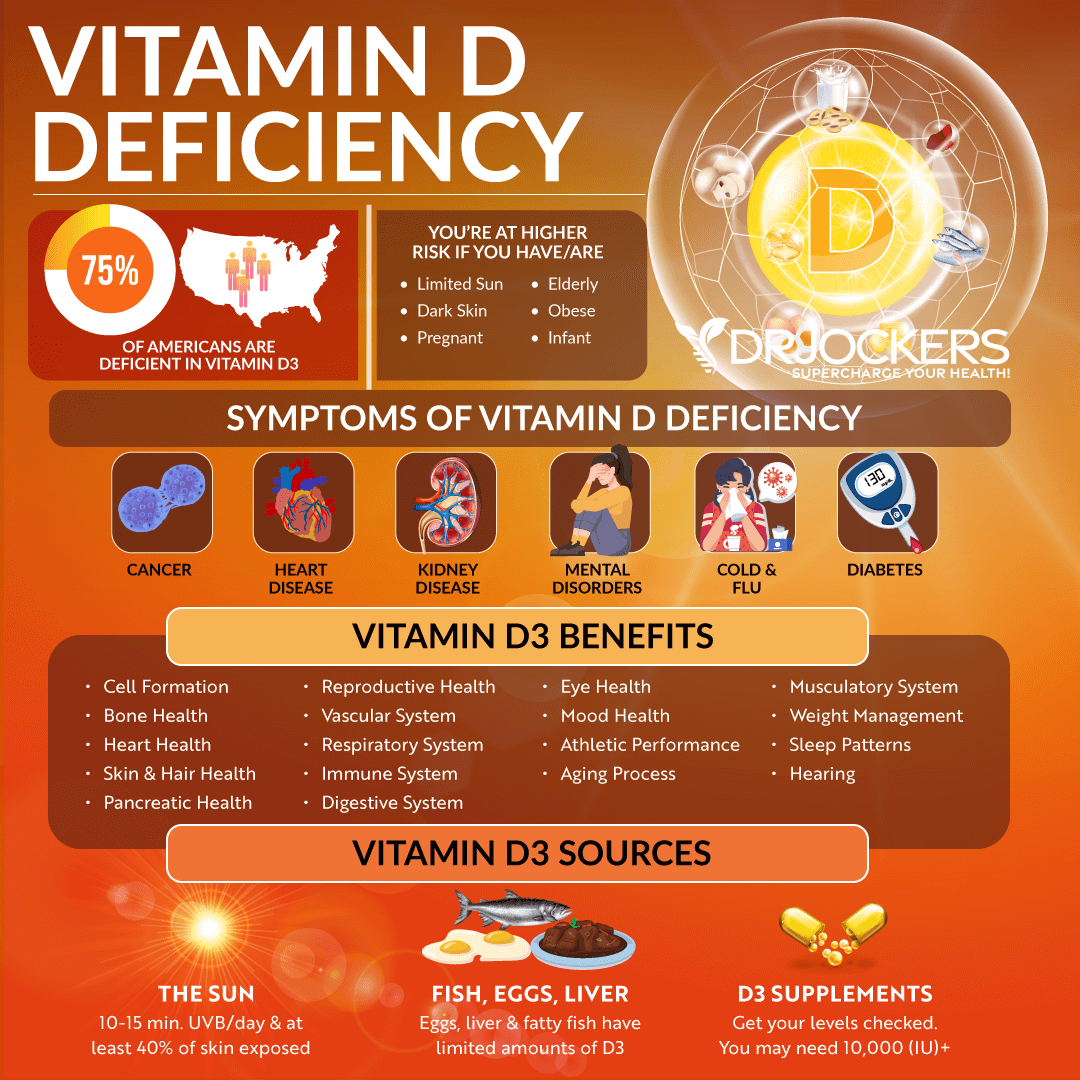
Vitamin D and Cancer Risk:
Vitamin D deficiency is a current epidemic in our society today affecting 90% of our world’s population. According to Vitamin D expert Michael Holick, `We estimate that vitamin D is the most common medical condition in the world.`
It is clear that most people are not getting enough healthy sun exposure. Vitamin D deficiency is linked to increased risk of virtually every form of cancer including skin cancer, cardiovascular disease and autoimmunity (2, 3).
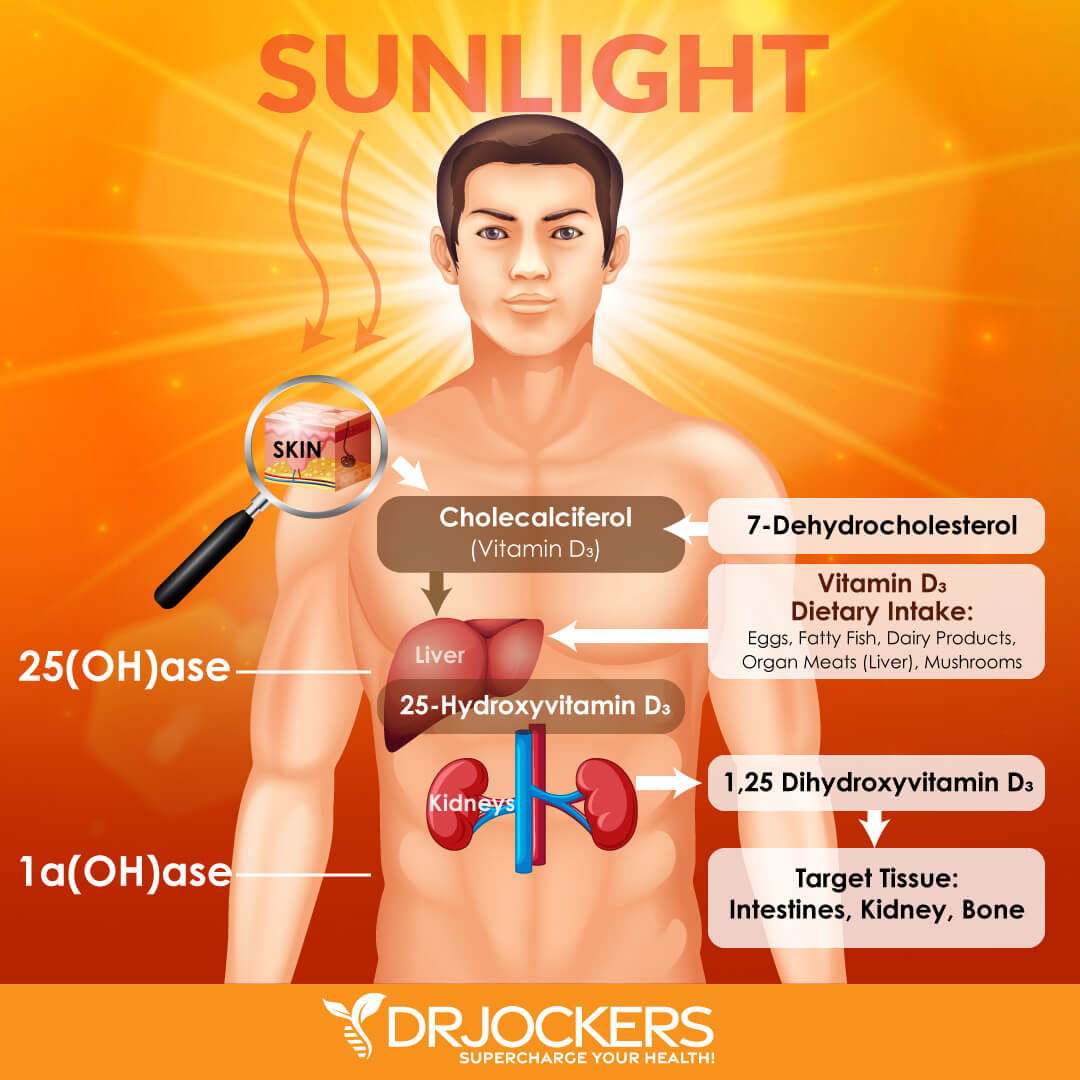
Melanoma is a deadly form of skin cancer that has always been associated with excessive sun exposure. However, many recent studies have shown that individuals wearing sunscreen had a higher likelihood of getting melanoma (4).
Additionally, melanoma patients with increased levels of sun exposure were less likely to die than other melanoma patients. Patients who already had melanoma and a lot of sun exposure were prone to a less aggressive tumor type (5).
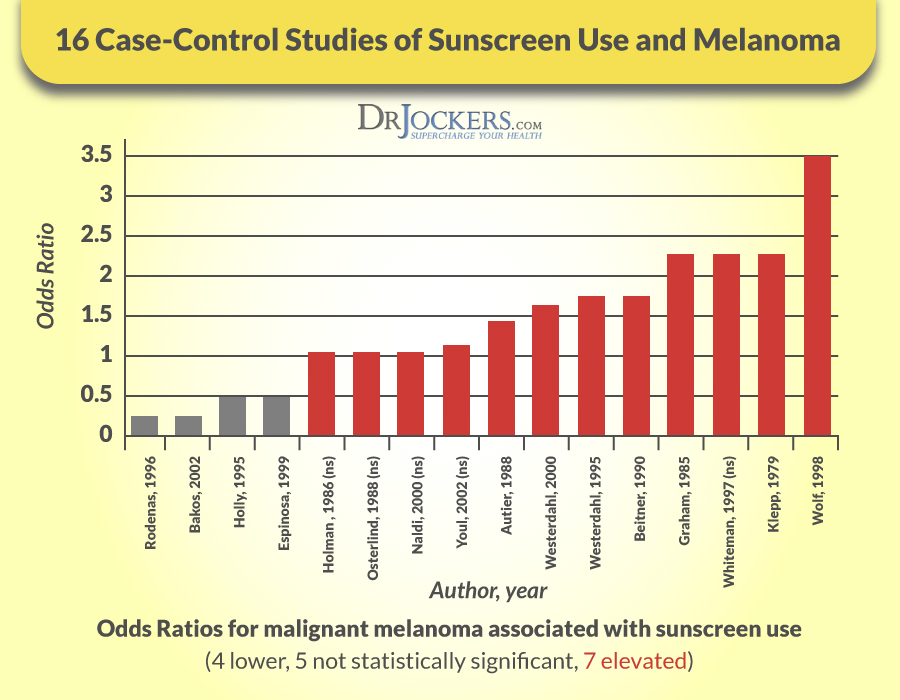
Sunscreen is Loaded with Toxins:
Due to worries over excessive sun exposure many people choose to lather up with sunscreen. In 2007 the FDA admitted that they “are not aware of data demonstrating that sunscreen use alone helps prevent skin cancer.”
The International Agency for Research on Cancer recommends clothing, hats and shade as primary barriers to UV radiation. They have written that “sunscreens should not be the first choice for skin cancer prevention and should not be used as the sole agent for protection against the sun.”
Up to 30% of the sunscreens on the market contain a form of Vitamin A (retinyl palmitate) that may speed the development of skin tumors and lesions. (6) The industry uses retinyl palmitate in its formulas because it is antioxidant that enhances skin health.
Numerous studies have shown that Vitamin A can cause excessive skin growth (hyperplasia) and that sunlight can damage the antioxidant and cause it to form harsh free radicals that damage DNA. (7)

Other Toxins Found in Common Sunscreens:
Benzophenones (dixoybenzone, oxybenzone) Cinnamates
PABA esters Salicylates Digalloyl trioleate
Menthyl anthranilate Avobenzone Octocyrlene
Octinooxate
 Toxins are Estrogenic:
Toxins are Estrogenic:
All of these ingredients are highly toxic to our skin and bodies. They produce rampant amounts of free radicals that create an excess of oxidative stress. (8) Oxidative stress is a potent carcinogen that causes genetic mutations. These chemicals are highly estrogenic in that they mimic the effects of estrogen within our body and cause hormonal disruptions that increase cancer cell formation.
Natural sunscreen protection comes from tropical oils such as coconut, eucalyptus, jojoba, & shea butter. Zinc oxide when applied appropriately is a powerful protectant from the damaging effects of too much sun.
It is always advisable to wear hats and other clothing if you know you are going to spend an excessive time in the sun. Apply aloe vera and/or coconut oil on any areas that are overexposed to help ease the pain and nourish the skin. Both of these sources support the skin microflora and harmonize the healing process.
Additionally, the best natural, non-toxic sunscreens that I have found are the Mercola brand. Check out the following:
Mercola SPF 30 Mercola SPF 15 Natural Tanning Oil
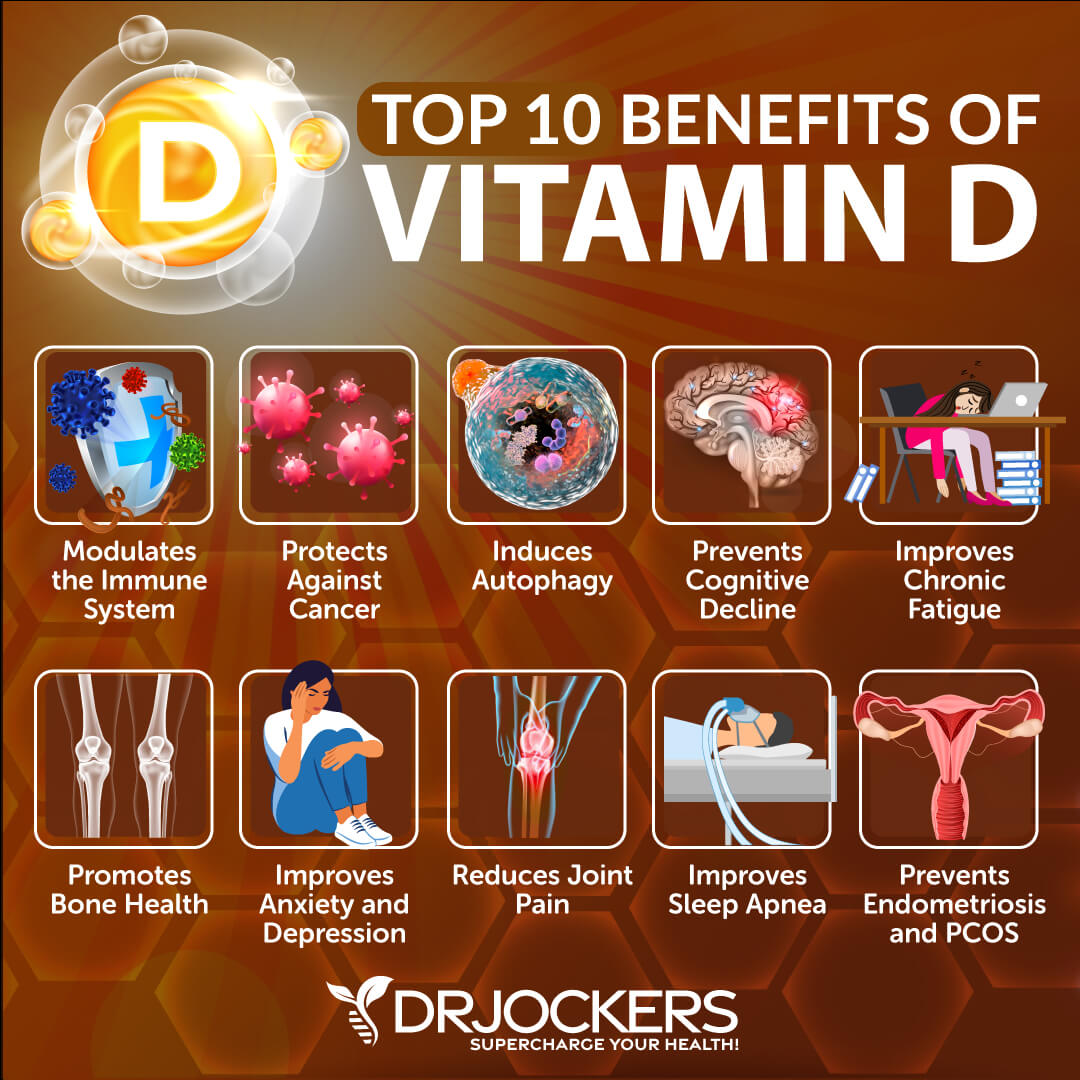 Tips For Healthy Sun Exposure:
Tips For Healthy Sun Exposure:
The ideal amount of sun exposure should produce somewhere in the range of 10,000 – 20,000 IU of vitamin D3. This depends upon the amount of body parts exposed, the strength or angle of the sun and the color of the individual’s skin.
This is the approximate amount of time each individual skin type needs of sun exposure to get the appropriate 10,000 – 20,000 IU considering that at least 60% of the body is exposed to sunlight. This would be equivalent to intentionally sunbathing. They should get this amount at least three times weekly in order to fully optimize vitamin D3 levels.
1. Light skin = 15-20 minutes daily
Medium Skin = 25-30 minutes daily
Dark Skin = 40-45 minutes daily
2.Use coconut oil, aloe vera and/or green tea extract as a moisturizer before and after sun exposure for added anti-oxidant protection
3. If adequate sunlight is not available or attainable than supplement with 1,000 IU of vitamin D3 per 25 lbs of body weight daily. I typically use dosages of 5,000-10,000 IU of vitamin D3 with 90-180 mcg of vitamin K2 to get levels up high quickly and then lower to the standard 1,000 per 25lbs of body weight dosage.
Inflammation Crushing Ebundle
The Inflammation Crushing Ebundle is designed to help you improve your brain, liver, immune system and discover the healing strategies, foods and recipes to burn fat, reduce inflammation and Thrive in Life!
As a doctor of natural medicine, I have spent the past 20 years studying the best healing strategies and worked with hundreds of coaching clients, helping them overcome chronic health conditions and optimize their overall health.
In our Inflammation Crushing Ebundle, I have put together my very best strategies to reduce inflammation and optimize your healing potential. Take a look at what you will get inside these valuable guides below!




